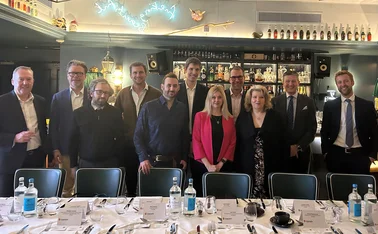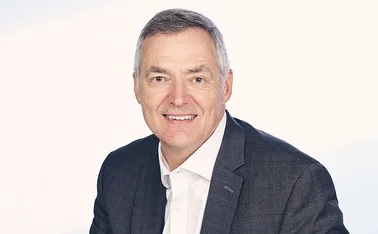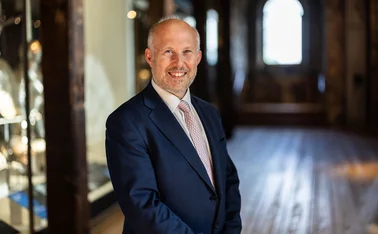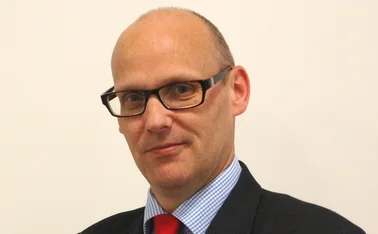
Growing SMEs: SME-volution
From the earliest beginnings as innovative start-ups, to their ultimate emergence as corporate entities, evolving SMEs will always need brokers to ensure that cover matches exposure.

What does a home baker selling cakes from his kitchen window have in common with a multi-million pound manufacturing company?
Other than both being classed as small and medium enterprises, the truth is very little - and it is the overwhelming diversity of scale, structure and individual specialism that makes the SME sector so difficult to categorise.
However, SMEs are the axle around which the economy turns, representing 99.9% of all private sector businesses in the UK, 59.1% of private sector employment and 48.8% of private sector turnover. They also provide jobs for more than 14 million people in the UK.
SMEs' fundamental importance to the performance of the economy means that understanding them is crucial. Risk profiles change at each different stage of development, as do developing SMEs' insurance needs and the role the insurance industry has to play in their successful evolution.
‘Lifestage turnover' differs dramatically by sector and individual business, so estimates are meant to provide only a generic picture.
Using the example of two fictional SMEs, a new local restaurant and a fledgling manufacturer using recycled materials to make office items, helps to illustrate how these changes might manifest themselves.
Early beginnings
The first stage in the lifecycle is that of the start-up, which generally has turnover of up to £100 000. As an entrepreneur, the owner has taken a business idea and is striving to make it a going concern. The entire focus is on winning customers and delivering a new product or service.
For the manufacturer, all of the sales and administration required is run from home, with the production contracted out to third parties and deliveries made by post.
While at the restaurant, the multi-tasking owner is chef, waiter and chief bottle washer, trying desperately to maintain some sense of calm for his new clientele.
At this early stage, almost everything is being done for the first time and the biggest risks surround simply getting the basics right.
The knowledge and reassurance a broker can offer at this point is highly valuable to these businesses and can help them avoid simple mistakes, ensuring that the key liability and property risks are effectively insured, for example.
Existing home insurance policies are unlikely to cover all the risks created by the commercial use of a home, and this could prove fatal if a policy does not respond when needed.
Similarly, basic risk management advice on premises security and safety standards will go a long way to prevent a start-up being affected by theft and liability claims.
Formal business entity
The next stage is becoming a formal business entity, where turnovers of £100 000 to £1m are common.
The product and service proposition has now been established across a small customer base, and the challenge facing the SME is to smooth out cash flow, keep a grip on costs and get an understanding of how future growth can be funded.
The manufacturer has established relationships with repeat customers and suppliers, and the business is beginning to investigate new product lines and dedicated business premises.
The restaurant, meanwhile, is now serving up its fare to regular diners and beginning to make a name for itself in the neighbourhood. The owner has a small front-of-house team and kitchen brigade to help, and is no longer the chief bottle washer.
This is the point where the owners have a formal business that is heading for success, is delivering a source of personal income, and is building an asset that is worth protecting long term.
It is also where they recognise they have employees to support and manage, intellectual property to protect, and personal exposure from expanded product use and adoption.
This is a fantastic time for brokers to forge long-term relationships with SMEs by helping them protect their interests with the correct insurance products and helping them understand their risks.
Next is the successful SME, with turnover of up to £5m. Approaching midlife, there is a crisis of identity that most SMEs have to go through as owners decide whether to marshal their resources for further growth or to use the business as a platform to fund their lifestyle and ultimately disengage from day-to-day operations.
This is a big decision. The manufacturer has already moved to bigger premises, brought production in-house, invested in machinery to enable this and looked to again broaden the scope of the product lines on offer.
The restaurateur has turned into more of a businessman and has opened a second location after developing a brand identity and working on a marketing campaign for the local area.
The insurance policies that served these businesses previously need to be scrutinised to ensure they still provide adequate cover given the firms' growth, and any unique risks these businesses face need to be identified.
Covers required for risks such as employers' liability will have become a lot more complex for these SMEs, while motor fleet and key-man insurance are making an appearance in the schedule for the first time.
Going for growth
After realising their success, SMEs go for growth, with turnover reaching more than £10m. Reaching for the stars, the manufacturer has consolidated previous growth and is now looking to really drive things forward.
The restaurateur now has venues across the region, and individual managers have responsibility for the profit and loss of each restaurant. Product ranges for sale in supermarkets have been developed, and the owner's role is now largely strategic.
Both businesses have created shareholder boards and must meet the professional governance standards and accountability required as a result.
The manufacturer's newly appointed risk manager is now reviewing the business's insurance requirements with its trusted professional broker and, as a significant business with professional management, it is clear that directors' and officers' exposures have changed dramatically.
Multi-site operations make the property risks more complex, and product liability is a major consideration.
Finally, the SME reaches corporate status. This SME has long flown the nest and has successfully consolidated after a period of significant growth and established professionally managed departments covering finance, human resources and operations.
Working from multiple sites with a sophisticated distribution network, the manufacturing business has many products lines and has established a full-service office supplies proposition for clients.
The restaurant business has invested in developing its range of ready meals further and is launching a series of cookery books, while also expanding its footprint at a national level.
Both businesses are now working with their brokers and insurers to create bespoke insurance programmes that cover more complex exposures such as trade credit, product recall and business interruption.
On their journeys, the priorities and challenges faced by these businesses have changed dramatically.
Zurich's recent SME Risk Index Q3 research found that, for the formal business entity, employment regulations were seen as the biggest regulation challenge facing the business by only 17% of SMEs. However, by the time they were in the ‘go for growth' stage, this had tripled to 51%.
Similarly, fleet maintenance was seen as the biggest operational risk by only 3% of formal business entities, but had jumped to 16% for those in the ‘go for growth' stage.
Pigeonholing SMEs is nigh on impossible, but there are generic and thematic changes they all experience as they develop through their life stages.
Brokers have a huge role to play in helping SMEs through these stages, from making sure policy cover matches exposures, to identifying legislative and regulatory risks and ensuring that risk management and mitigation is used as a positive driver for the business.
The broker, as trusted expert and adviser, is therefore an essential partner for the growing SME.
Richard Coleman is director for SME commercial broker at Zurich.
Video: Growing SMEs
As a firm develops from a start-up to a fully-fledged corporate entity, its risk profile inevitably changes. As exposures alter, insurance needs also evolve.
This video interview featuring Post news editor Mairi MacDonald in conversation with Richard Coleman, director for SME commercial broker at Zurich, looks at the different lines of insurance that become relevant to a firm at various stages of its lifecycle, and asks whether insurers and brokers are on hand to show clients how to protect themselves against new insurable losses.
Only users who have a paid subscription or are part of a corporate subscription are able to print or copy content.
To access these options, along with all other subscription benefits, please contact info@postonline.co.uk or view our subscription options here: http://subscriptions.postonline.co.uk/subscribe
You are currently unable to print this content. Please contact info@postonline.co.uk to find out more.
You are currently unable to copy this content. Please contact info@postonline.co.uk to find out more.
Copyright Infopro Digital Limited. All rights reserved.
You may share this content using our article tools. Printing this content is for the sole use of the Authorised User (named subscriber), as outlined in our terms and conditions - https://www.infopro-insight.com/terms-conditions/insight-subscriptions/
If you would like to purchase additional rights please email info@postonline.co.uk
Copyright Infopro Digital Limited. All rights reserved.
You may share this content using our article tools. Copying this content is for the sole use of the Authorised User (named subscriber), as outlined in our terms and conditions - https://www.infopro-insight.com/terms-conditions/insight-subscriptions/
If you would like to purchase additional rights please email info@postonline.co.uk
Most read
- Covéa shrinks staff numbers by almost a third amid further losses
- DLG or Esure – which Peter Wood baby is most likely to bounce back?
- Aviva CEO warns home insurance premiums need to go up








